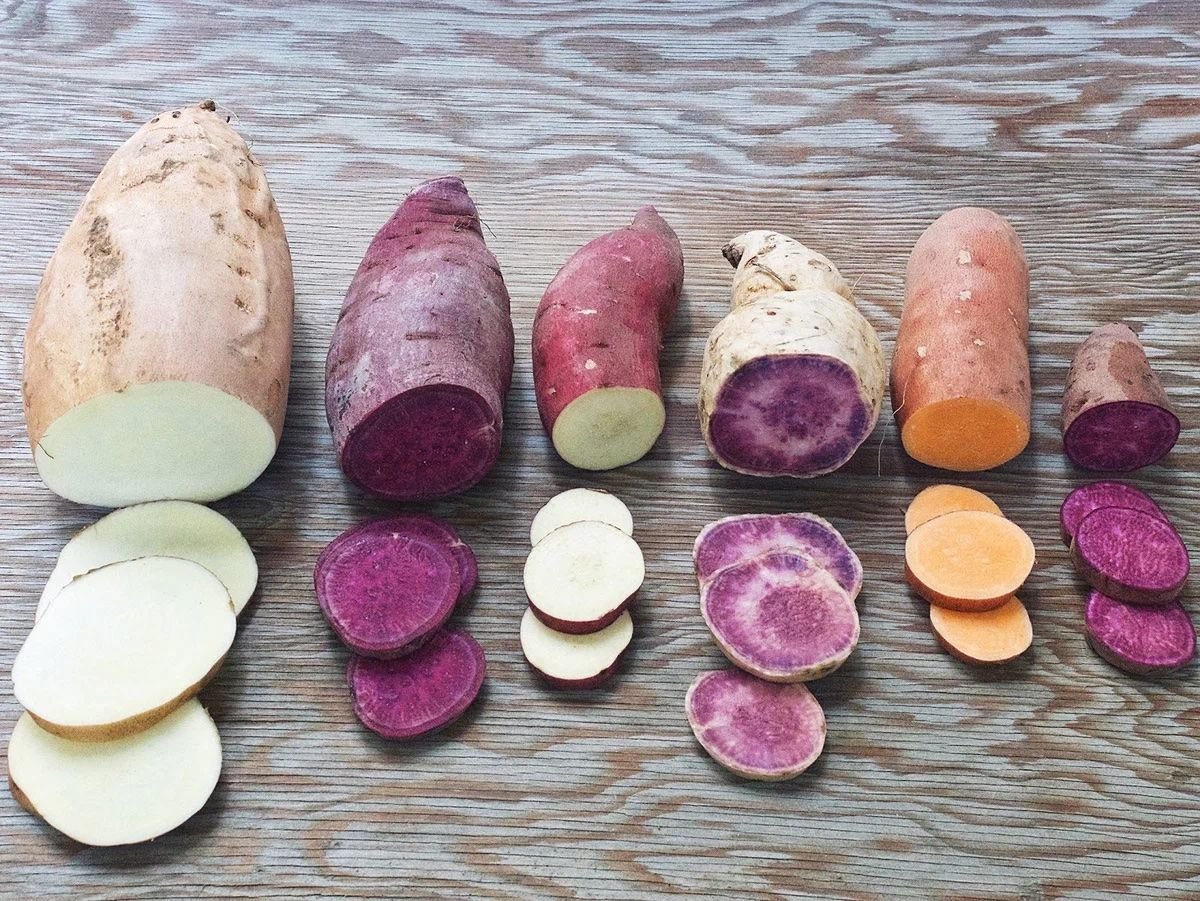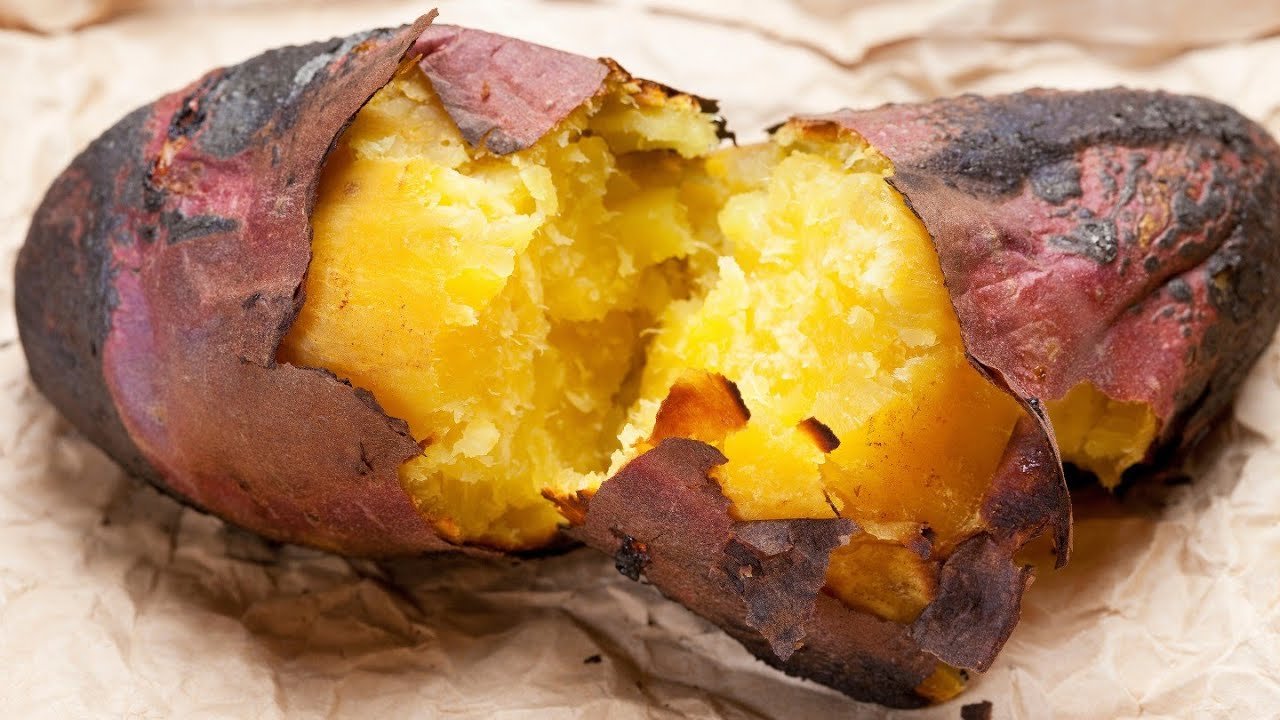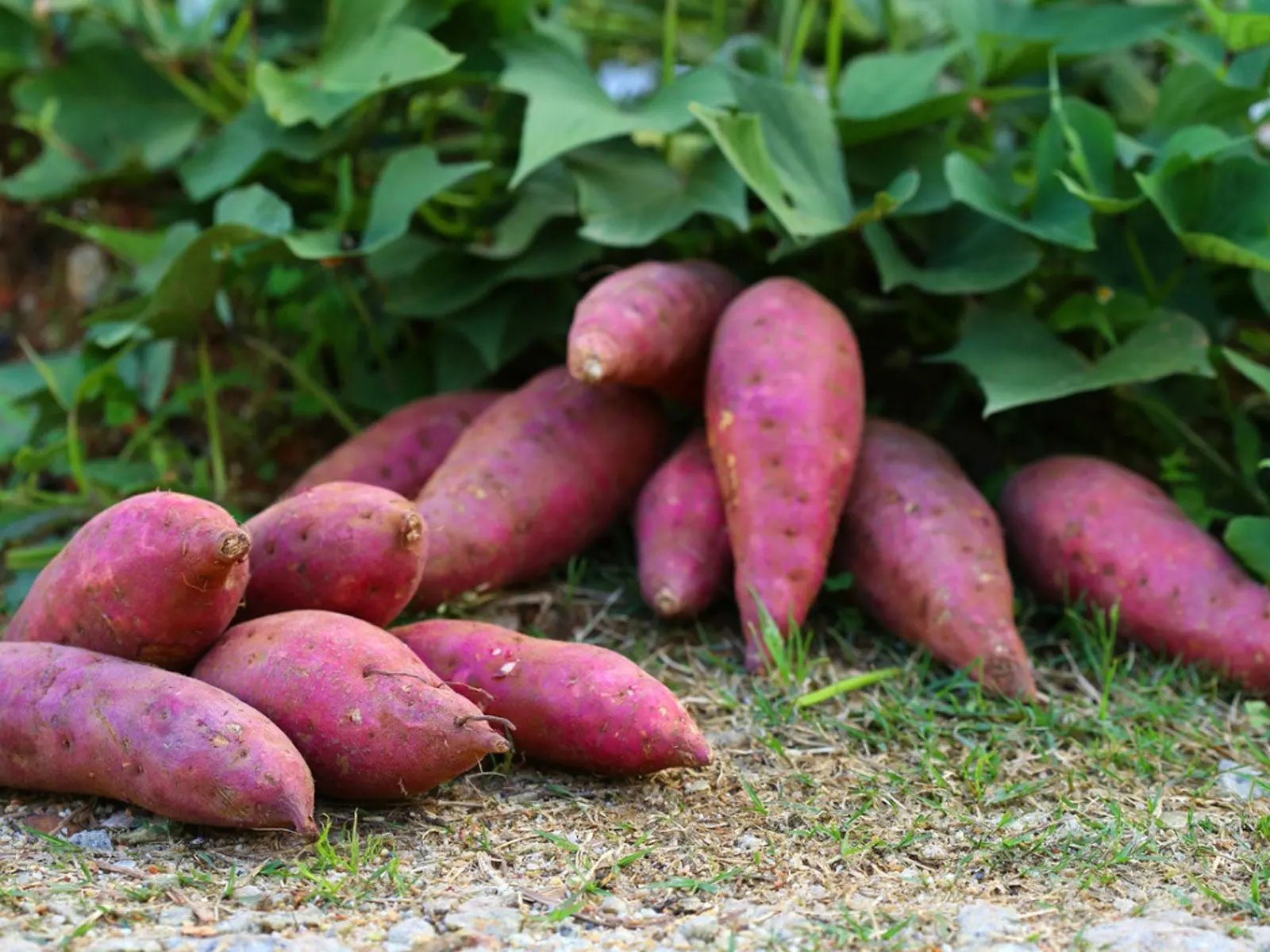Sweet potatoes are often praised as one of the healthiest foods on the planet — rich in fiber, vitamins, antioxidants, and a natural sweetness that makes them hard to resist. But before you make them a daily staple, there are some **important things you need to know**.
Here are **8 surprising facts about sweet potatoes** that may change the way you eat them

## 1. **Not All Sweet Potatoes Are the Same**
You may think sweet potatoes only come in one variety — orange-fleshed and soft — but that’s just one of many. There are **purple, white, and yellow-fleshed sweet potatoes**, each with slightly different flavors, textures, and nutritional profiles.
**Purple sweet potatoes** are particularly rich in anthocyanins (powerful antioxidants), while **white ones** tend to be less sweet and drier — a great option for people monitoring blood sugar.

👉 _Tip: Mix varieties for broader health benefits._
## 2. **Sweet Potatoes Are Not Yams**
Many people use the terms “sweet potato” and “yam” interchangeably, but they are completely different plants. Yams are starchy tubers native to Africa and Asia, with rough, bark-like skin. Sweet potatoes, on the other hand, are smoother and sweeter.
In the U.S., orange sweet potatoes are often labeled as yams — but that’s just marketing.

## 3. **They Can Affect Blood Sugar — Even Though They’re “Healthy”**
Sweet potatoes have a lower glycemic index than regular white potatoes, meaning they cause a slower rise in blood sugar. However, **they’re still a carbohydrate-heavy food**.
Eating large portions or adding too much butter, syrup, or sugar can quickly turn this superfood into a hidden sugar bomb.
👉 _If you’re diabetic or watching carbs, stick to small servings and pair with protein or healthy fat._
## 4. **They’re Packed With Vitamin A – But There’s a Catch**
One of the biggest benefits of sweet potatoes is their high content of **beta-carotene**, a precursor to vitamin A. Just one medium sweet potato can provide **over 400% of your daily Vitamin A needs**.

But here’s the catch: Your body needs **fat to absorb it effectively**. If you’re eating sweet potatoes without any fat (like plain steamed), you may not be getting the full benefit.
👉 _Add a drizzle of olive oil, avocado, or nuts to boost absorption._
## 5. **Too Much Can Cause Skin Discoloration**
It may sound strange, but eating **too many sweet potatoes regularly** can lead to a condition called **carotenemia** — a harmless but noticeable yellow-orange tint to the skin, especially on the palms and soles.
While it’s not dangerous, it can be a sign that you’re overdoing the beta-carotene.
👉 _Moderation is key, even with healthy foods._
## 6. **The Peel Is Packed with Nutrients — Don’t Toss It**
Many people peel their sweet potatoes before cooking, but **the skin contains valuable fiber, potassium, and antioxidants**.
If you buy organic sweet potatoes and wash them thoroughly, you can (and should) eat the peel. It adds texture, flavor, and extra health benefits.
👉 _Roast them with skin on for a crispy, nutrient-rich side dish._
## 7. **They’re a Great Food for Gut Health**
Sweet potatoes are rich in both **soluble and insoluble fiber**, which support digestion and promote healthy gut bacteria. They also contain resistant starch, which acts like a prebiotic — feeding the good bacteria in your intestines.
A healthy gut is linked to **better immunity, brain health, and weight control**, making sweet potatoes a smart food choice when eaten in balanced amounts.
## 8. **Cooking Method Matters – A Lot**
Not all cooking methods preserve sweet potato nutrients equally. For example:
– **Boiling** helps retain more beta-carotene but may lower fiber content.
– **Baking or roasting** enhances flavor and keeps the skin intact but may increase glycemic impact.
– **Frying**, especially in unhealthy oils, turns this superfood into a high-fat snack.
👉 _Healthiest choice: steam or roast with skin, minimal added fat or sugar._
## Final Thoughts: Should You Keep Eating Sweet Potatoes?
**Absolutely – but be smart about it.**
Sweet potatoes are incredibly nutritious and versatile. They can support eye health, digestion, immunity, and overall well-being. But like all foods, **how you prepare them and how much you eat matters**.
Before you load your plate with mashed sweet potatoes or sweet potato fries, ask yourself:
– Am I eating a healthy portion?
– Is this cooked in a nutritious way?
– Am I adding unnecessary sugar or fat?
If you approach sweet potatoes mindfully, they’ll be a fantastic ally in your healthy eating journey.
